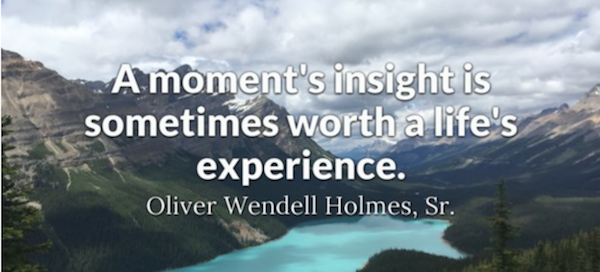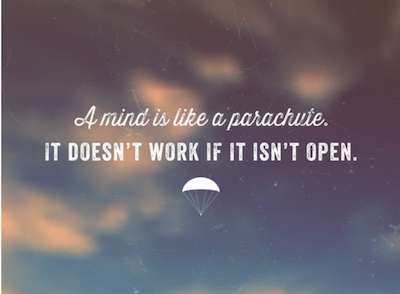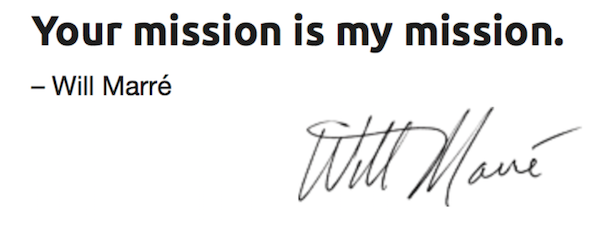In our mysterious, complicated world, where the truth is always more than we know, where there are both right answers and many wrong answers, and where so many decisions have unintended consequences, how do we navigate?
The answer is insight.
Insight is a personal path to deeper truth. It is easy to be caught up in superficial living, chasing synthetic goals and thinking we will end up with our real dreams. Superficial living doesn't work.
 WARNING:
WARNING: A life of insight involves risk. It is only for those brave enough to grow and to constantly challenge themselves. But its rewards are huge. Every day becomes a new step in an unfolding adventure rather than a stale repeat of yesterday's routines.
Insight is a deeper way to approach truth and understand your life, talents, and significance. It is your essential, inner guidance system that connects with external reality. Without insight, it is virtually impossible to become aware of what, at your deepest level, you already know. If that statement sounds mysterious, it isn't. Insight has been the path to life's deepest satisfactions since human beings began dreaming about something more—something better.
Insight is a quantum leap of imagination or understanding that brings us to a new way of looking at some aspect of our lives. It's the
Wow! The
Eureka! Or, sometimes, the
Duh. We take in a certain amount of knowledge and experience in a given area, and then suddenly,
Bam! We shift to a new, expanded level—a broader way of seeing things.
The two ingredients that produce insight are intention and open-mindedness.
Intention
Most of us live our lives without clear intention. We don't make decisions on purpose. We react and respond as the moment demands. Stuff just happens. Life has a random, chaotic quality. Will today be a good or bad day? Who knows?
Sometimes things work out. Sometimes they don't. We judge our happiness and success, at any given moment, by the outer results that are popping up for us. The externals:
Do I have the stuff I want?
Do I live where I want to live?
Do I have the spouse or partner I want?
Do I have the kids, a car, the job, the recognition, the health, etc., that I want?
We don't employ conscious intention. Conscious intention is waking up in the morning and saying to oneself, "No matter what happens today, I will use it as an opportunity to strengthen my character. I will love more deeply, express enthusiasm, and inspire others." Conscious intention puts the day's events into a meaningful perspective.

An intention is not a plan, a schedule, a list of bullet points, or a quantifiable statement of financial goals. Intention is a general determination that we keep in the back pockets of our inner lives. Holding a clear intention about the quality of our life is important.
Most people believe we live in a cause and effect world. We think, "If we're not in control of the causes, we won't get the results we want." But what if intention creates causes that lead to effects that we can't control? According to some philosophers, intention is the father of causes. So, to create the causes of your best life, the intention is essential.
Intention is not something we force or obsess over. Insight always seems to arrive when we're not thinking, concentrating, or "working the program." There's an old story of a student who goes to a Zen master seeking insight. She says, "Master, if I study with you, how long will it take me to achieve insight?"
The master says, "10 years."
"10 years!" the student exclaims. "That's so long! What if I try twice as hard?"
The master says, "Twenty years."
Intention doesn't mean trying hard. Intention means knowing where we want to go but not knowing how we're going to get there. We form our intentions; then we put them aside. We store them in our hearts. We leave them in the background and pay attention to reality. We give our moment-by-moment awareness to what's going on right now, not what we want to happen.
The great basketball coach, John Wooden, was once asked what kind of player he would want to see holding the ball if his team were down by one point with time for one final shot. He said that players who have a fear of failure tend to choke. Players who obsess about winning tend to overtry. He would want to get the ball to a player who would simply focus on scoring.
Wooden knew the difference between intention and attention. Winning is the intention—the overall goal. Scoring is the process, the place where we need to put our attention right now. When we confuse the intention of what we want with the process of getting it, we over-try or choke.
OPEN-MINDEDNESS
No matter how clear our intentions are, we must have open minds, or we won't receive any insight. Insight does not come to a mind locked behind bars of its own prejudices. Our brains simply cling to known orbits. Quantum leaps of new ideas or beliefs are so scary, they don't occur.
Most of the time we think the same thoughts, come to the same conclusions, and hold the same opinions. We only look for evidence to confirm the views we already have. We operate on assumptions.
We must learn techniques for breaking our minds out of imprisoning, mental ruts if we want to liberate our thinking so that we can receive new insights on choosing and living our best lives. We don't create insight and we don't force it; it comes to us. And for it to do that, we need to be in a receptive state. We need to have open minds.
Pardon my Zen, but a second parable comes to mind. Maybe you've heard it. A college professor goes to visit a Zen master to gain wisdom and insight. The professor prattles on, telling the Zen master about all the books he has read and all the knowledge he has already mastered. The Zen master nods politely, pouring tea into his visitor's cup. When the teacup is full, the Zen master keeps right on pouring. The professor reacts in horror. "What are you doing? The cup is overflowing!" The Zen master says, "How can I pour insight into you when your cup is already full?"
Having a conscious, open, receptive mind has been a challenge in every era but is particularly hard in the modern, technological era. Technology and the media permeate our lives. Computers, TVs, cell phones, social media, advertisements, books—the media buzzes 24/7, telling us what to think, how to think, and who to think like. The media bombards us from all sides, feeding us recycled opinions, concerns, desires, and goals.
Our world has a mental flu. Idea viruses infect us constantly.
It is very easy to "sleepwalk" through an entire life, our minds filled with viral ideas that outside sources pour into us. Sometimes it seems more like we are "being thought" than thinking for ourselves.
Opening our minds to receive original insight can be an enormous challenge. It means actively changing the way we use our conscious thinking. It means adopting a creative, proactive, and inquiring attitude rather than a passive, habit-driven one.

To open our minds, we must reduce stress and create favorable, inner conditions. Stress makes us stupid. Whenever the emotional parts of our brains sense a threat, they reduce our thinking options. This reduction leaves us with only our most familiar and habitual responses. We become angry, protective, and defensive. This changes our brains. So, emotional conditions strongly affect our states of mind. Open-mindedness is just not possible under stress.
How do we reduce stress to create true open-mindedness?
First, we must gain control of our mental and emotional states by recognizing our emotional triggers. Any emotion that is triggered by outside events is always in you, not in the trigger. No person or thing outside us ever creates an emotion. Show a modern 13-year-old a swastika. Doing this won't trigger strong emotions. Show the same symbol to a Holocaust survivor, and see what happens.
The emotion is not in the symbol; it is in the person. Once we truly get this, we begin to understand that we are the originators of all our emotions. We stop blaming people and events for them. Then, something wonderful happens: our emotions begin to come under our control. We are free. Our free will expands.
Second, we must learn to use "the watcher" within. We do this through simple awareness—the life camera we all have inside that watches our lives with a sense of detachment and objectivity. Every time one of your triggers occurs, simply turn on the camera.
Imagine you are a documentary filmmaker zooming in on yourself. What do you see? Observe yourself. Observe your reactions to the trigger. Be aware. Awareness shifts the events from the realm of the automatic ("He's making me mad!") to the realm of the conscious ("There I go, starting to feel angry.") and starts to put the situation under your control.
Third, we must create new internal triggers to lessen our automatic responses. Creating positive triggers means creating habits that free your mind, rather than shut it down and lock it up. You just need to find the angle that opens your mind rather than locks you in.
When your child is testing your authority, you can choose to see it as growth rather than a power struggle. When your partner is ignoring you, you can remind yourself that their present, emotional detachment is not really about you. Find compassion instead of anger. Offer a kind gesture instead of a snipe. Open a genuine discussion rather than whine. In time, a new habit will form—one that invites the new rather than repeats the old.
When we process the events and experiences of our lives with the conscious intention of becoming wiser and more expanded, open-minded human beings, we reward ourselves with surprising insights. These insights let us take giant leaps in discovering and fulfilling our best lives.

Opinions expressed by the author are not necessarily those of WITI.
Are you interested in boosting your career, personal development, networking, and giving back? If so, WITI is the place for you! Become a WITI Member and receive exclusive access to attend our WITI members-only events, webinars, online coaching circles, find mentorship opportunities (become a mentor; find a mentor), and more!
Founded in 1989, WITI (Women in Technology International) is committed to empowering innovators, inspiring future generations and building inclusive cultures, worldwide. WITI is redefining the way women and men collaborate to drive innovation and business growth and is helping corporate partners create and foster gender inclusive cultures. A leading authority of women in technology and business, WITI has been advocating and recognizing women's contributions in the industry for more than 30 years.


 An intention is not a plan, a schedule, a list of bullet points, or a quantifiable statement of financial goals. Intention is a general determination that we keep in the back pockets of our inner lives. Holding a clear intention about the quality of our life is important.
An intention is not a plan, a schedule, a list of bullet points, or a quantifiable statement of financial goals. Intention is a general determination that we keep in the back pockets of our inner lives. Holding a clear intention about the quality of our life is important.  To open our minds, we must reduce stress and create favorable, inner conditions. Stress makes us stupid. Whenever the emotional parts of our brains sense a threat, they reduce our thinking options. This reduction leaves us with only our most familiar and habitual responses. We become angry, protective, and defensive. This changes our brains. So, emotional conditions strongly affect our states of mind. Open-mindedness is just not possible under stress.
To open our minds, we must reduce stress and create favorable, inner conditions. Stress makes us stupid. Whenever the emotional parts of our brains sense a threat, they reduce our thinking options. This reduction leaves us with only our most familiar and habitual responses. We become angry, protective, and defensive. This changes our brains. So, emotional conditions strongly affect our states of mind. Open-mindedness is just not possible under stress. 
Comments